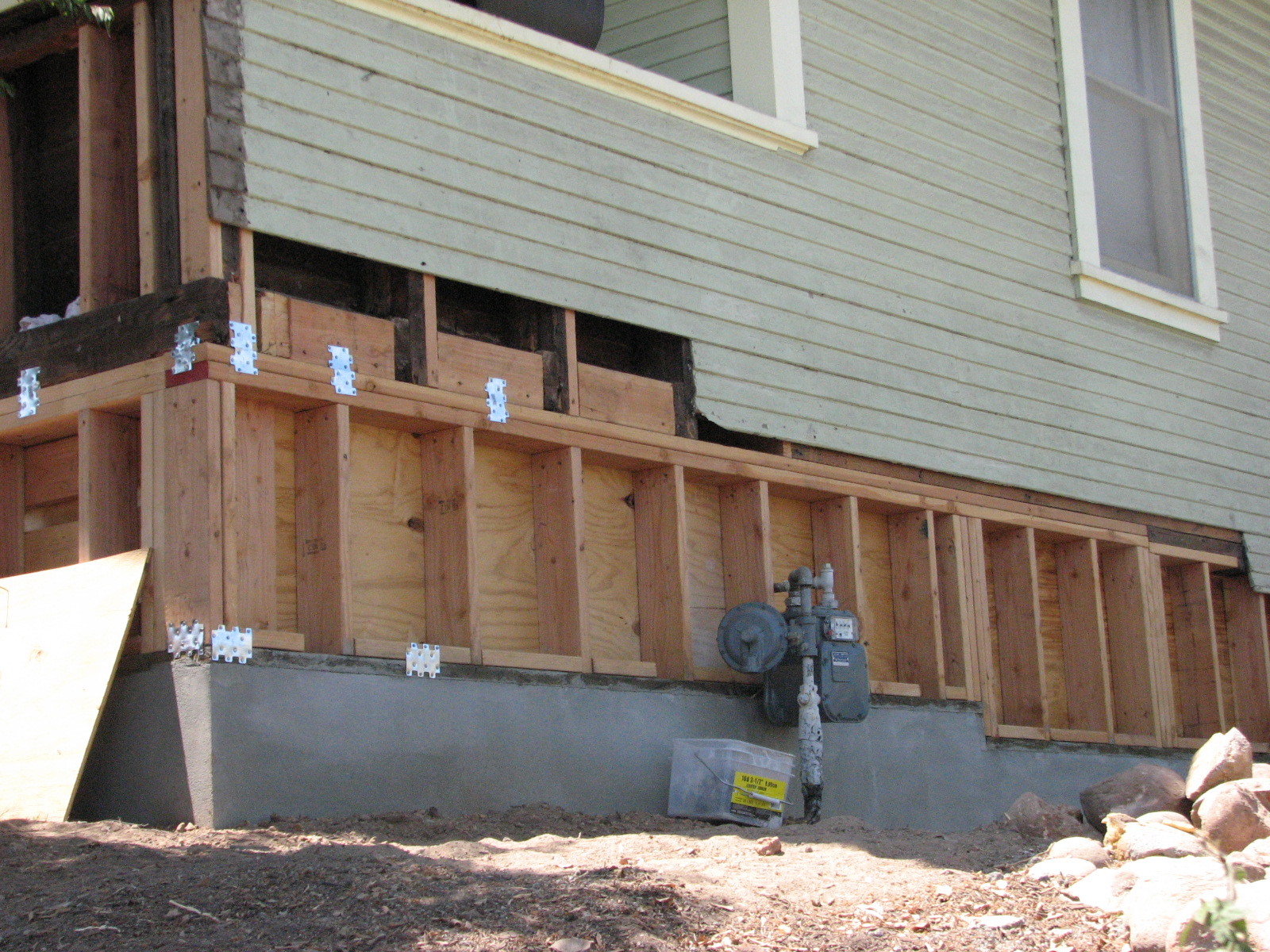Rant
Larry’s Rant #3
Ok, time for chapter three in the rant series. Thanks to all the people who complimented me on my previous op/ed pieces. Please note that this is my opinion only, and though it’s backed up by my experiences and observations, the bottom line is you should think for yourself. I also hope people don’t use my informing others of these cheating techniques to dupe other people who haven’t taken the time to learn about the right way to hire contractors to get their work done. Just because I point out reasons contractors play fast and loose with the rules doesn’t make it ok and I hope every contractor who does work illegally or badly is prosecuted, or at least doesn’t profit from it. Nevertheless, the real reasons I am adding a new chapter are because: One-I recently met a customer with a problem that is not unique and Two-it’s raining today and I have the time since I’m staying in the office. We all know about how bad So-Cal drivers are when it rains!
One of the most important sources of future work for us is real estate. In California , (as well as the rest of the country, I imagine) buyers inspect the homes they are purchasing prior to closing escrow, and often the issue of foundations comes up. And we get a call, look at the problem, and provide cost estimates. We also look at houses for people prior to selling, as well as regular homeowners. People are trying to get an idea of what work should be done so they are not surprised when they sell, or to protect their investment. Most people want to know that their house is safe and well maintained. It is also important, particularly on the older houses we work on, that any remodeling is done correctly, and in the right order. Leveling floors needs to be done BEFORE the windows and doors are installed. Otherwise, you cannot level the floors without ruining all the previous work. As foundation contractors, we are typically first in, to prevent future damages to the improvements being made to the house.
Unfortunately, the money involved in major foundation repairs is substantial. That’s why people investigate houses prior to buying, and why there are disclosure laws. These are intended to protect buyers from dishonest sellers, and also to protect all the parties involved, such as the agents, mortgage companies, etc. It may come as a shock to you, but it has happened that certain sellers will not tell buyers all they know about the condition of their house. While some things are unknowable (on my house we had a plumbing leak one month after close of escrow the previous owner could not have known) other things are, especially if they are investigated.
This is the time to point out that I keep records of all my estimates. I look at enough houses that I can’t remember a particular house by its address or owner, but I usually can when I see it. When you’ve looked at the same house three times for the same customer, it can get frustrating (the record is five). So, I check all estimate calls for previous estimates. This leads me to my story.
As I do most every day, I got a call for an estimate from a gentleman who had purchased a house about a year ago. I looked up his address, and lo and behold, a previous estimate. It seems the house has a few issues, including (and not limited to) insufficient access in the crawlspace (the house is too low), cracked and rotating perimeter foundation, posts and piers shot, rear addition without any foundation, and a porch that is badly cracked. The previous bid is around $30k (three years previously) given to the owner who sold it to an investor/rehab type contractor who then “fixed” up the house. And then sold it to this gentleman.
I suppose the investor might not have known there was a problem with the foundation. If he was blind, deaf and drank a fifth of scotch a day. But the neighbor who observed the “repairs” and overheard all the stories (like having a spy!) said he got a bid for 30k, then got a bid for 15k, then hired a guy who worked during the week on the new baseball stadium and weekends on this house to do the work for $5k. Which scares me to no end, having seen the work that was done. I hope he didn’t do anything important on the stadium! According to the neighbor, they cut holes in the floor, jacked up the house to improve the level (I couldn’t tell if it improved….) and placed wood blocks under the perimeter, and poured concrete around the blocks. Then patched the floors. Surprise, surprise, a year later it’s shifting, cracking the walls, cracking the new stucco. I see a cost of around $45k for the foundation, not counting the stucco, plaster, plumbing (lifting the house 12” for access) concrete flatwork, paint, plaster, re hanging kitchen cabinets, etc., etc. He’s got $70-80k in damages, and he’s now in mediation to figure it out.
This is a terrible situation for all involved. It also not as unusual as you would think. I often get calls about a house that I have looked at before, and the sellers haven’t been clear about the issues, in spite of the fact that they have received a bid from me for the repairs. I would assume they got other opinions if they didn’t agree with my assessment, and they may have been the same, or worse. When I get that call, I send a copy of the previous estimate, and let the buyer make their own conclusions. On the other hand, often the sellers say there has been estimates, provide a copy, or at least let the buyers know. That allows the buyer to purchase the house with full awareness of what they are getting into. Not to mention keeping everyone out of court. And some (not all) real estate agents are only interested in a commissions, and don’t care what happens. The agents are called “old pizza delivery dude” by teenagers-after their broker and they lose everything in the lawsuit.
So take this as a warning. If I give you an estimate, you are stuck with it. That’s not to say I am the god of foundation repairs. Get several bids to be sure of the issues. You may find two or three other contractors that disagree with me, and will say it’s no problem (sure you will….). But do understand that you can’t lie to people and say there isn’t a problem, because if there is, and you know it, and you don’t disclose it, it’s on you. And it’s a lot more expensive when you pay the buyer’s attorney fees.
Ok, so you got a group of bids from various contractors you don’t agree with. Your next option is to hire an engineer to evaluate the property. I often recommend an engineer, especially if there are issues that I’m not sure about. When it comes down to it, engineers trump contractors. Also, be aware that you should hire your own engineer, not have the contractor (that includes me) hire the engineer. You want the engineer to work for you, not me. The engineer has no profit motive to make the job bigger, only to ensure it’s done right. But be forewarned…engineers are conservative by nature, and will recommend doing the job correctly. This may put you back to my estimate.
I must also point out that these issues can be dealt with. I have rarely seen a project that made tearing the house down more feasible than repairing it-only major landslides come to mind, and that’s FEMA stuff. If the soil is bad, then the new house will have issues to deal with too. Often, the repairs are an improvement to the house that justifies a higher price on sale. Example? Your floors are tilting so badly no one wants to buy your house. You didn’t mind it, but your inner ear is destroyed and you drink all day (oh, that Uncle Bill…)-hard to get top dollar at that pint. A new foundation will last 100 years, and some people appreciate that. At the end of the day, fix it, and the buyers will come.
The bottom line for me is this: don’t call me if you are trying to pull a fast one, or if you are going to put the estimate in the shredder. I’m only stating the facts, Ma’am, and you have a responsibility to any buyers to be honest with them about the issues pertaining to your house. I only care that the house is repaired correctly, and I don’t want to be a party to covering up defects in a house. It just isn’t right to hide the truth, and everyone will pay for your lies. It’s about basic fairness. I have seen enough houses that have suffered from poor workmanship without people trying to hide the facts about the house. These great old houses and people who care about them deserve better.









Leave a reply